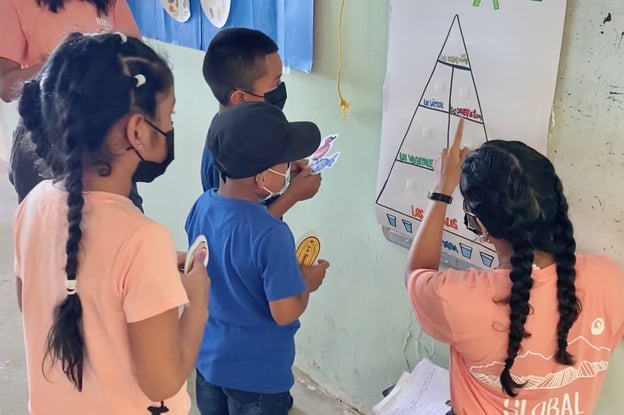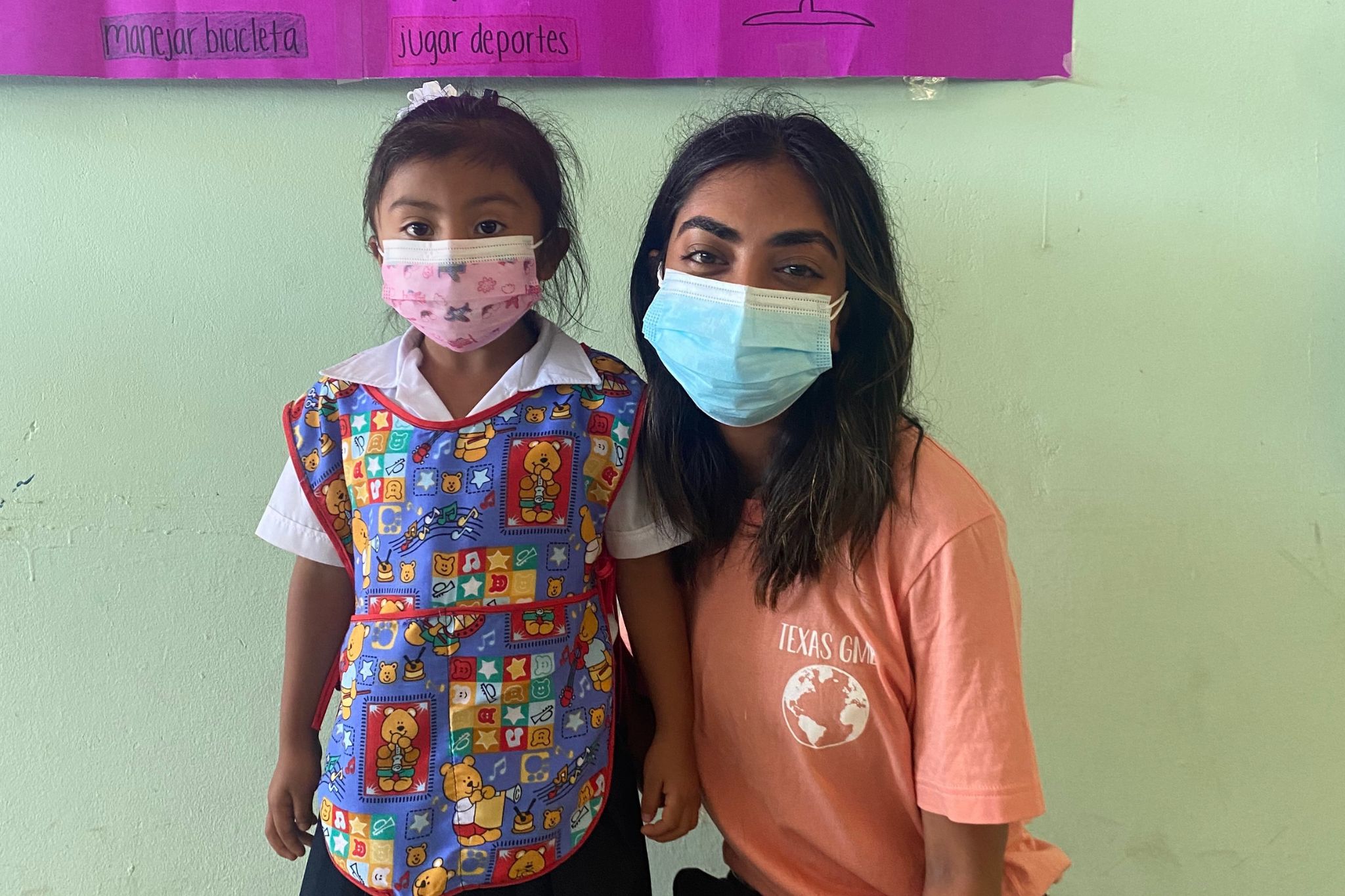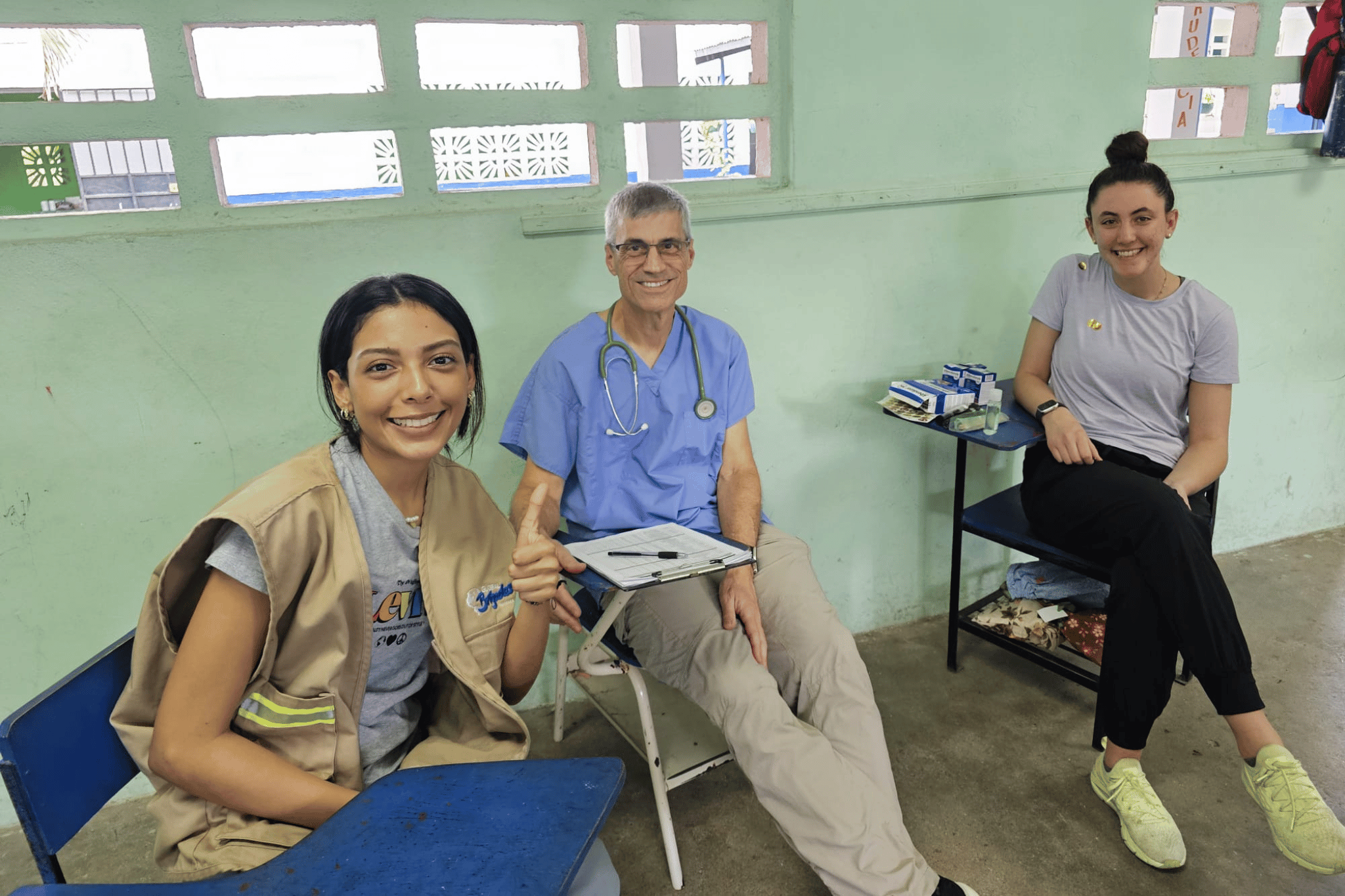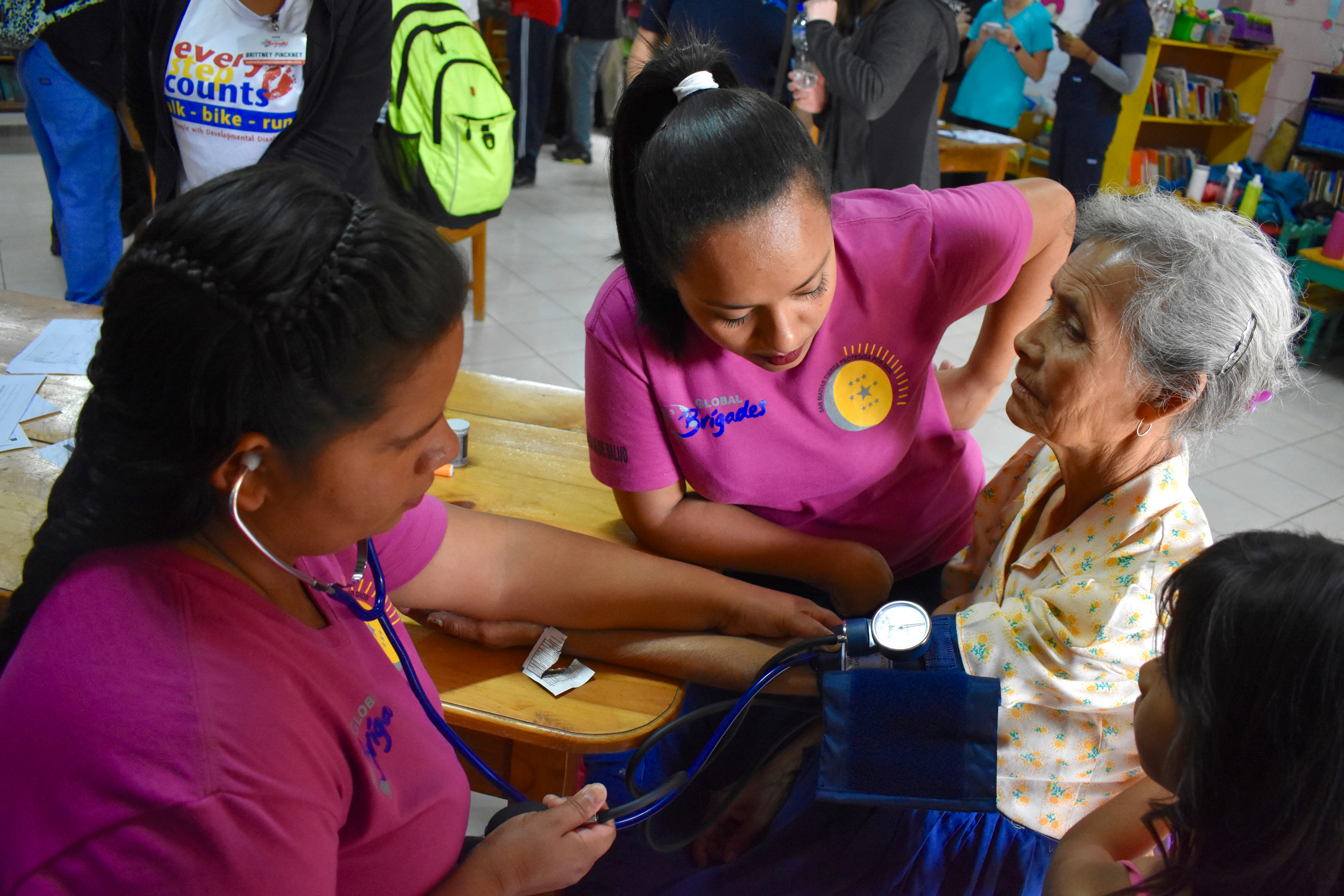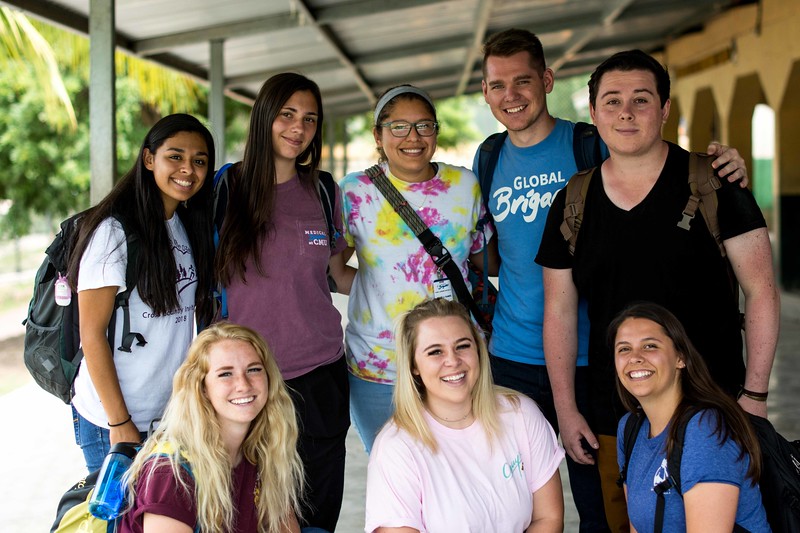When Siona Manocha decided to volunteer internationally, she knew the right opportunity wouldn’t just be a one-time trip — instead, she wanted to join hands with a truly sustainable organization. She found the answer in Global Medical Brigades, and her burgeoning medical career was forever transformed.
Over the years, the University of Texas at Austin has raised nearly $1.9 million to support partnerships around the globe to empower lives in 27 under-resourced, rural communities. They’ve sent a total of 52 Brigades of students to shadow local healthcare professionals in mobile medical clinics.
On average, healthcare professionals see about 300 patients during each medical clinic supported by pre-health students. UT Austin’s Brigade Chapter has impacted the lives of over 7,200 people in those 27 partner communities, all while preparing students for a career in medicine as mindful global citizens.
This university’s success must be attributed to its student members and leaders, such as Siona Manocha. Chapter Presidents like Siona are responsible for capturing and implementing the vision of empowerment for Global Brigades’ partner communities, and it all starts with the right motivations.
Related: The 9 Best Extracurriculars for Medical School
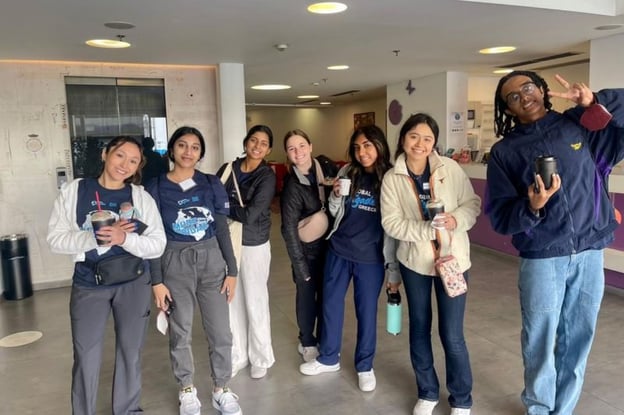
The Vicious Cycle of Healthcare Disparity
Siona Manocha, former president of UT Austin’s Global Medical Brigades chapter, observed a vicious cycle when she traveled on Brigades to Panama and Greece:
When community members have limited access to healthcare, their local economy suffers. When the local economy suffers, it’s harder to access healthcare.
Siona learned firsthand about “the large discrepancy between healthcare in the United States and countries like Panama and Greece.”
“I hoped to play a role in providing access to basic healthcare in under-resourced areas,” Siona told us, “in order to work towards greater healthcare equity and to decrease the disparity between developed and developing countries.”
Read Next: Performative Activism: Evaluating Motives for Volunteerism
Another challenge was the language barrier. In Panama, Siona could use her grade school Spanish classes and medical Spanish college studies to communicate with her patients, especially after one day of getting used to the local dialect.
However, in Greece, her Brigade only had access to 2 translators: one fluent in Arabic and Farsi, one fluent in French. However, patients also spoke in Greek, English, and Urdu. Siona realized how critical it is for doctors to know their patients’ native tongue — and how difficult it can be in multilingual communities to provide the best healthcare possible.
Siona found hope though. “I resonated with GMB’s message of holistic development and sustainability. Even after we leave a country, our impact will stay through our work with community healthcare workers.”
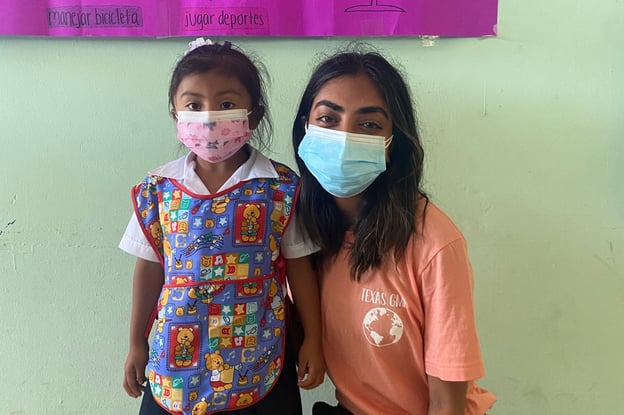
Sharing More Than Just Healthcare
“When we visited the boys living at the Greek refugee camp, we did a presentation on dental hygiene and played interactive games. At the end, everyone played music on their phones and formed a dance circle.
“It was very impactful,” Siona continues. “It showed me that people are the same everywhere. These boys have left their families, fled to Europe, and gone through awful events in their young lives. However, through it all they are dancing and singing to Arabic and Afrobeat music. It made me smile.”
“These are all people like you and me. The only difference is they are displaced from their homes, displaced from their families.”
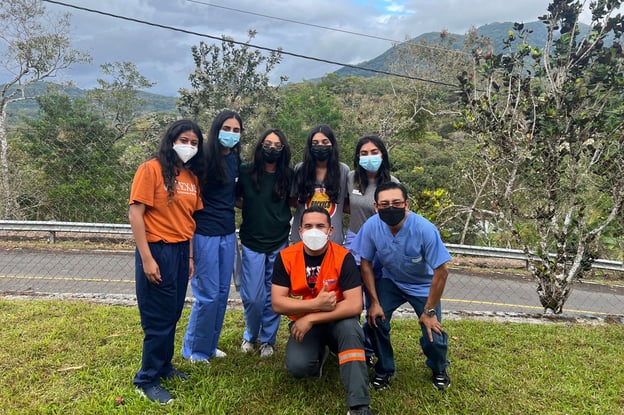
Equitable Access to Medical Care
Disparities in the global healthcare system helped Siona realize with her own eyes that everyone needs equitable access to medical care. That’s why she has dedicated herself to correcting those disparities in all the little ways she can.
“In Panama, we spent time with the children and taught them about nutrition while their parents were visiting the doctor. The most memorable part of this interaction was getting to know the children.
“I met a 10-year-old boy named Rafael, a 9-year-old girl named Annabelle, a 9-year-old boy named Jose, and a 5-year-old boy named Kevin. We colored different food groups and named different foods, assigning them to their specific food groups.”
Such a simple interaction made a huge impact in Siona’s professional and personal life.
“This showed me that just because people grow up in a different area of the world, with different cultures and different languages, our internal needs and desires for medical care are the same. It motivated me to work in the healthcare field in order to help someone's father, someone’s mother, someone’s child, because we are all, in our core, the same.”
Want to learn more about joining or starting a Chapter at your university?
